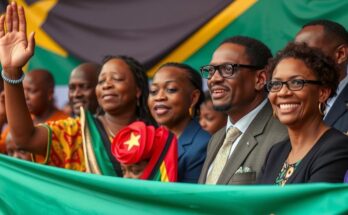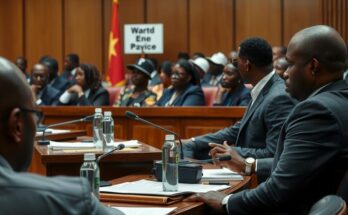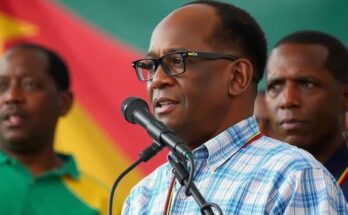House Speaker Fonati Koffa has authorized the distribution of the draft national budget to the 73 members of the House of Representatives to enable comprehensive review. This move follows a contentious process where the budget was improperly submitted to the Chief Clerk. The ongoing political standoff among factions in the House complicates legislations, particularly in achieving the necessary quorum to discuss the budget.
In a significant move toward fiscal transparency, House Speaker Fonati Koffa has authorized the distribution of the draft national budget to all members of the House of Representatives. Representative Dixon Wlawlee Seboe confirmed this directive, stating that the initiative is essential for facilitating a detailed review of the financial document by the lawmakers. This development follows the Ministry of Finance’s submission of multiple budget copies, as stipulated by the Public Financial Management Law.
Representative Seboe elaborated that this proactive step encourages legislative scrutiny of the budget, although he cautioned that any discussions would depend on achieving a quorum under Speaker Koffa’s guidance. This announcement brings attention to the contentious budget submission, which has experienced procedural deviations, notably when the executive branch presented the draft budget improperly to the Chief Clerk rather than the Speaker.
Currently, the political atmosphere within the House is tense, as two rival factions await a Supreme Court ruling to clarify their legitimacy. Speaker Koffa and the Minority Bloc face difficulties in convening sessions due to insufficient quorum, while the Majority Bloc has withheld its meetings owing to a Supreme Court order halting legislative proceedings. The distribution of the draft budget highlights the urgent need to break the existing stalemate, especially since the nation’s fiscal operations are contingent on the timely approval of the budget.
The context of this article revolves around the legislative processes concerning the budgetary procedures in Liberia’s House of Representatives. It highlights the critical role that the House plays in reviewing the national budget, a document that outlines government revenue and expenditure. Recently, the processes surrounding the submission and review of the budget have become contentious, leading to political impasses and challenges in governance. The backdrop includes a legislative environment where rival factions exist, complicating standard operations and further affecting fiscal decision-making at a national level.
In conclusion, the decision by Speaker Koffa to distribute the draft national budget signifies a crucial progression towards fiscal accountability within the House of Representatives. However, the ongoing political turmoil and procedural irregularities present significant challenges to achieving a consensus and facilitating the budget’s passage. As the factions await judicial clarification of their status, the urgency for cohesive governance and timely budget approval remains paramount for the nation’s fiscal health.
Original Source: frontpageafricaonline.com




